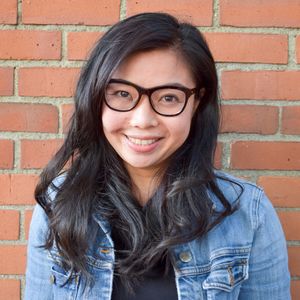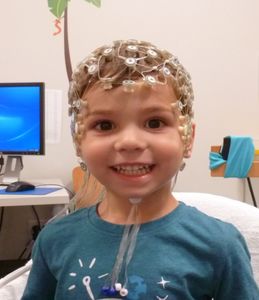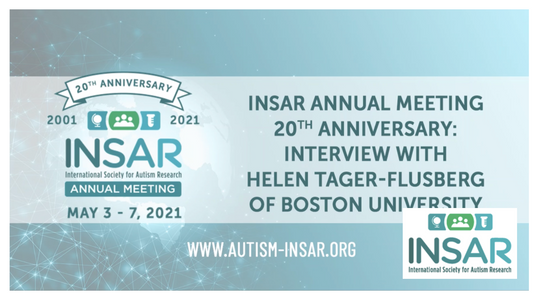CARE News
INSAR Lifetime Achievement and Dissertation Award!
Farewell, Jenn!

We've been so lucky to have Jenn Leano work here at CARE for four amazing years! This past week was her last week-- Jenn has taken a position as Clinical Research Program Coordinator with Dr. Megan Ranney's team at Brown University, Lifespan Center for Digital Health. We all wish her well in her new role!
We surprised her at our lab meeting last week with a little video that Emily put together, and fun was had by all. I can't share the video, so the above still from it will have to suffice.
Jenn, we hope you have lots of fun at Brown, we know you'll do amazing things, and we'll miss you tons!

Want to work at CARE? We’re looking for a post-doc!

Post-Doctoral Research Fellowship
The Center for Autism Research Excellence (CARE) at Boston University has an immediate opening for a full time post-doctoral fellow for a 2-year term to work on a variety of ongoing research programs that explore early brain and behavioral development in autism, with a focus on language and social cognition. We are looking for an energetic scientist who has a strong research background in development and autism (or related neurodevelopmental disorders), some technical and programming expertise, and experience collecting and analyzing clinical, behavioral and electrophysiological (EEG/ERP) data.
The Post-Doctoral Fellow will have primary responsibilities in supporting new and ongoing research programs. Responsibilities include:
- Training and supervision of students and other project staff
- Data collection including both standardized behavioral assessments and EEG/ERP measures
- EEG/ERP and behavioral data processing and analyses
- Write-up and dissemination of findings for reports, conference presentations and peer-reviewed publications
Required Qualifications:
- Ph.D. in Psychology, Cognitive Science, Neuroscience or related fields
- Experience working with children in research settings, preferably including individuals with ASD
- Training in two or more of the following areas: cognitive science/cognitive neuroscience, neuroimaging/electrophysiology, developmental sciences; autism research
- Programming skills (e.g., MATLAB; Python) and proficiency with statistical programs and analyses (e.g., R, SPSS)
- Excellent interpersonal leadership skills, writing, and organizational skills
- Strong record of scholarly accomplishments
Salaries and benefits are competitive. Boston University offers active support and professional training programs to post-doctoral fellows (https://www.bu.edu/postdocs/). Interested candidates should send a CV, cover letter, research statement and contact information for three professional references to Helen Tager-Flusberg, Ph.D. (htagerf@bu.edu) and Chloe Adams Agarwal (CARE Administrator – chloeaa@bu.edu).
To learn more about our work please visit our website:
http://www.bu.edu/autism
World Autism Awareness Day
On World Autism Awareness Day, we celebrate the countless ways that people with autism contribute to our families, our communities, our Nation, and the world, and we shine a light on the systemic barriers people with autism face in their daily lives.
You can read the full proclamation from the White House here.
Celebrating Dr. Barokova!!
 Last week, one of our doctoral students, Mihaela Barokova, defended her dissertation successfully and earned her PhD! Tomorrow, the newly-minted Doctor is giving a talk to the Infant Brain Imaging Study (IBIS) Network to talk about her ELSA protocol for language assessment and communication in ASD! She had another invited talk earlier in the month- March has been a very big month for our Dr. Barokova!! You can read both of her 2020 publications here.
Last week, one of our doctoral students, Mihaela Barokova, defended her dissertation successfully and earned her PhD! Tomorrow, the newly-minted Doctor is giving a talk to the Infant Brain Imaging Study (IBIS) Network to talk about her ELSA protocol for language assessment and communication in ASD! She had another invited talk earlier in the month- March has been a very big month for our Dr. Barokova!! You can read both of her 2020 publications here.
INSAR 20th Anniversary!
The International Society for Autism Research (INSAR) has their 20th anniversary conference this year!! To celebrate the milestone, INSAR staff interviewed some of the board and committee members, Lifetime Achievement awardees, and fellows. One of the Lifetime Achievement awardees they interviewed was our very own director, Dr. Tager-Flusberg! You can watch her interview, and see more, on this website!!
Diagnosing Autism in the Pandemic
Cocktail Party Effect Review
Dr. Sophie Schwartz's "Cocktail party effect" research regarding neural response to names in noisy settings was just reviewed by Autism Advocate Parenting Magazine for their March issue! We think this is a great summary of this fascinating work. Dr. Schwartz explored how neural responses to names (one's own name, and strangers' names) differ between verbal and minimally-verbal individuals with ASD in both quiet settings and noisy settings. You can read their review here, and read Dr. Schwartz's paper here!
ASF Weekly Science Report Podcast!
We just found this podcast, the Autism Science Foundation's Weekly Science Report, and this particular episode that discusses some of our research! Covered here are our ELSA protocol on eliciting language samples, sound perception in minimally verbal individuals with ASD, and neural evidence for speech processing deficits in minimally verbal individuals with ASD. Thought you all might like to hear it!